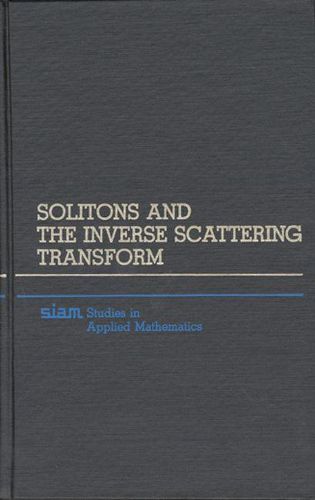Readings Newsletter
Become a Readings Member to make your shopping experience even easier.
Sign in or sign up for free!
You’re not far away from qualifying for FREE standard shipping within Australia
You’ve qualified for FREE standard shipping within Australia
The cart is loading…






A study, by two of the major contributors to the theory, of the inverse scattering transform and its application to problems of nonlinear dispersive waves that arise in fluid dynamics, plasma physics, nonlinear optics, particle physics, crystal lattice theory, nonlinear circuit theory and other areas. A soliton is a localised pulse-like nonlinear wave that possesses remarkable stability properties. Typically, problems that admit soliton solutions are in the form of evolution equations that describe how some variable or set of variables evolve in time from a given state. The equations may take a variety of forms, for example, PDEs, differential difference equations, partial difference equations, and integrodifferential equations, as well as coupled ODEs of finite order. What is surprising is that, although these problems are nonlinear, the general solution that evolves from almost arbitrary initial data may be obtained without approximation.
$9.00 standard shipping within Australia
FREE standard shipping within Australia for orders over $100.00
Express & International shipping calculated at checkout
A study, by two of the major contributors to the theory, of the inverse scattering transform and its application to problems of nonlinear dispersive waves that arise in fluid dynamics, plasma physics, nonlinear optics, particle physics, crystal lattice theory, nonlinear circuit theory and other areas. A soliton is a localised pulse-like nonlinear wave that possesses remarkable stability properties. Typically, problems that admit soliton solutions are in the form of evolution equations that describe how some variable or set of variables evolve in time from a given state. The equations may take a variety of forms, for example, PDEs, differential difference equations, partial difference equations, and integrodifferential equations, as well as coupled ODEs of finite order. What is surprising is that, although these problems are nonlinear, the general solution that evolves from almost arbitrary initial data may be obtained without approximation.